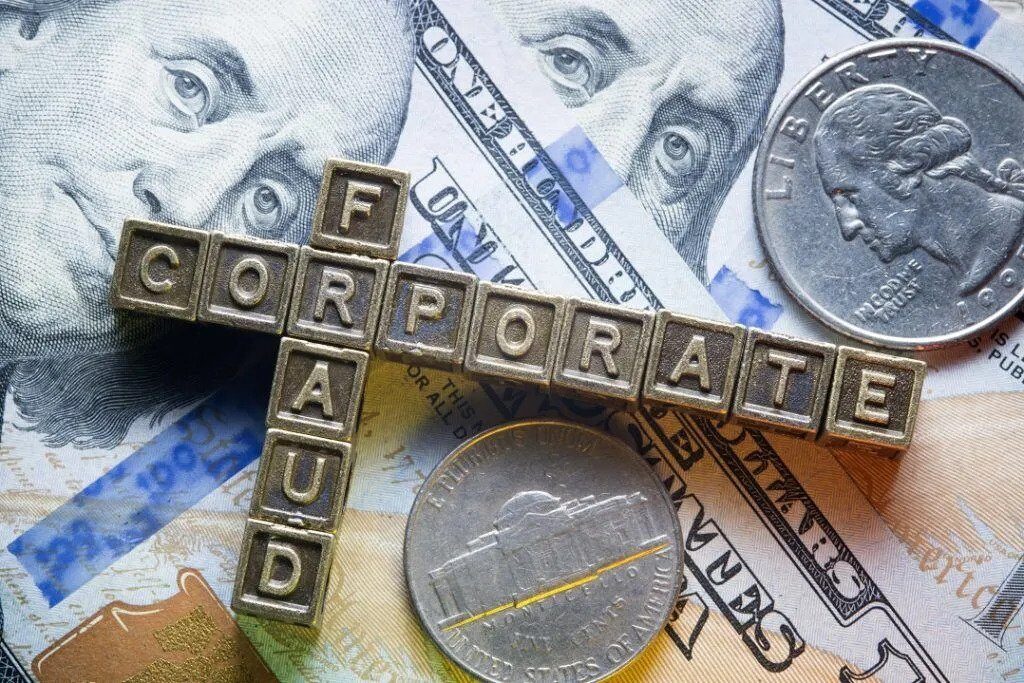21 November 2022

Cryptocurrencies, corporate fraud and why people
ain’t nevah, evah gonna learn 🤷♂️

21 November 2022 (Washington, DC) – We’ve had a bunch of collapses of complicated cryptocurrencies this year (including a $50bn+ loss at Terra Luna).
But over the last 2 weeks we’ve had something much simpler and more old-fashioned – bank fraud. Sam Bankman-Fried, the disgraced crypto kingpin whose spectacular downfall, along with that of FTX, the company he founded, caused $32 billion to disappear, much of it belonging to hundreds of thousands of regular people. FTX was forced to declare bankruptcy and a new court-ordered CEO was brought in to try and make sense of the books (see below).
Bankman-Fried had evolved into a media darling over the past two years – gracing the cover of Fortune magazine and earning interviews with the likes of CNBC and Bloomberg. SBF, as he’s often referred to, studied physics at MIT and spent time at the renowned arbitrage trading firm Jane Street. He styled himself as the nerdy gigabrain, with a messy mop of hair and a penchant for sleeping in the office while building a financial empire just so he could donate it all to charity.
But SBF merely embodies yet another pretension of plutocratic benevolence: that of the renegade, the people’s billionaire. Like many others, he hawked cryptocurrency as a fight against the establishment, against the big banks, against the powers that be, man. He has said his work was motivated by the ideals of effective altruism, a trendy school of thought that encourages people to go out and make as big a heap of money as they can so that they can use it to heal the world. But, as he admitted in an interview last week, SBF’s claims about the ethical nature of his pursuit were an example of “this dumb game we woke Westerners play where we say all the right shibboleths and so everyone likes us because they want to make a lot of money.”
SBF, a 30-year-old one-time quant, controlled a crypto hedge fund, Alameda, and a crypto exchange, FTX, both based in the Bahamas. And, yes, the now-repealed Glass-Steagall banned this exact arrangement in the U.S. after the 1929 crash.
The hedge fund (apparently) made a lot of money a few years ago when no real hedge funds were touching crypto. But once it did it, it started losing money, and it appears that it was trading with customer funds from FTX, and that hole was filled with stocks of a new token invented by FTX with no actual external trading value.
NOTE: the Federal Reserve can do this kind of stuff. You can’t.
And so when the founder of Binance, another crypto exchange, raised some concerns online … well, and the bank run on FTX went full swing. Binance had briefly looked at buying FTX and then walked away, smelling a rat (see below). Now FTX and Alameda are kaput. Something between $5bn and $10bn of customer funds are unaccounted for (see more below).
It’s a lot more complicated than that, but also, very simple. Outright fraud. It’s also a Rorschach blot. Hence this is really a finance story, not a tech story, and finance people are looking at this and saying “straight to jail, kiddo” – partly for misusing client funds but mostly for being really stupid.
Crypto people say this is a “tradfi failure” – you should store your tokens yourself (“self-custody“) and not leave them on an exchange. More realistic crypto people also argue out that the U.S. Securities and Exchange Commission’s somewhat incoherent crypto regulation has pushed activity like this offshore.
Silicon Valley people had raised eyebrows when they learned that mega venture capital firm Sequoia Capital had invested $150m into this thing without a board seat, let alone an audit – while also quietly admitting that they’d done similar moves to get into other “hot” deals.
And crypto skeptics say “Look! We told you so!” But frankly, this says as much about the validity of any crypto thesis as the Madoff fraud said about fund management. More seriously, they point out that speculation and fraud are the only substantial use-cases discovered for blockchains that anyone has actually built so far, though they generally forget the phrase “so far”.
From a safe distance, all of the above can be true. It’s certainly entertaining to watch the DeFi industry speed-run the last 100 years of financial services regulation (much as Elon Musk is speed-running the last decade of content moderation).
None of this bears on whether DeFi is in principle interesting, but it reinforces my general thesis that it will mostly be interesting to Wall Street people, not software people. Or as I have said before, Netflix questions are TV questions, and DeFi questions are finance questions. And in particular, none of this says anything about tech or “web3” – the idea you could build actual billion-user software on a blockchain. That’s still (say) 5-8 years away, which makes it safe to speculate about in the absence of any collision with reality.
And to add more crap to the pile, last week the new FTX bankruptcy CEO filed his first assessment of FTX, and it’s quite a read. He says this is the worst he’s seen in his career, and he’s the guy they had brought in to unravel Enron. The above link is only a 30 page read but for those of you who do this stuff, it’s worth your time. In brief:
• there was no finance team
• there was no cash management
• there is no list of FTX bank accounts
• there is no complete list of employees or their terms
• the company was buying apartments for some staff in their names with corporate funds
• the company loaned SBF a billion dollars
• SBF had a backdoor in to FTX’s accounting system, allowing him to move funds without alerting others
Meanwhile a Vox reporter, as part of its investigation, found out FTX was lending customer funds to SBF’s hedge fund, trying to position it as mostly chaos rather than fraud. Management’s official position is that “we got into this with the best intentions”. Really. You might want to have a chat with Elizabeth Holmes on how the “best intentions” argument works in court. Or better yet, ask Brett from Pulp Fiction.
Stepping back, if you start an exchange for trading a thing and then steal or lose your customers’ balances on that thing, this tell us little or nothing about that thing itself. That’s fraud. That’s not “a shift in market sentiment”, and it has all sorts of cascading consequences. This always happens in bubbles. Sometimes the bubble is tulips in 1636, and sometimes it’s Amazon in 1999.
NOTE TO READERS: Amazon’s high watermark of the dot-com bubble was when the stock hit $113 back in 1999. When the stock market bubble burst, Amazon traded all the way back down to $5.51 by late 2001.
Oh, there are lots of lessons to be learned here. The FTX collapse merely provides harsh reminders that there is no such thing as a free lunch when trying to make a quick buck in a still fairly new, unregulated financial industry, which 1000s of investors were trying to do.
As noted above, when the founder of Binance, another crypto exchange, briefly looked at buying FTX but walked away, smelling a rat. He saw a reckless funding method, reckless use of customer deposits and lines of credits, the arbitrary movement of customer funds, the potential loss of customer funds, etc., etc. Others saw the same things but chose to ignore it all – just trying to make a fast buck.
There is such a reckoning due on this: the media who wrote up the glowing reports, the Hollywood and entertainment and social media stars who took the payments (most in cash, by the way), all of the members in the U.S. Congress who took political contributions from SBF (many of them on Congressional financial and securities oversight committees) – and, of course, the scammers themselves. And it really ought to be a “9/11 moment” for the entire crypto “industry” – but there are still so many people who can’t believe this happened.
The bubbler exploits the gullibility of investors. That’s not difficult in times of market euphoria. As Walter Bagehot wrote in “Lombard Street” in 1873:
“The good times too of high price almost always engender much fraud. All people are most credulous when they are most happy; and when much money has just been made, when some people are really making it, when most people think they are making it, there is a happy opportunity for those with ingenious mendacity”.